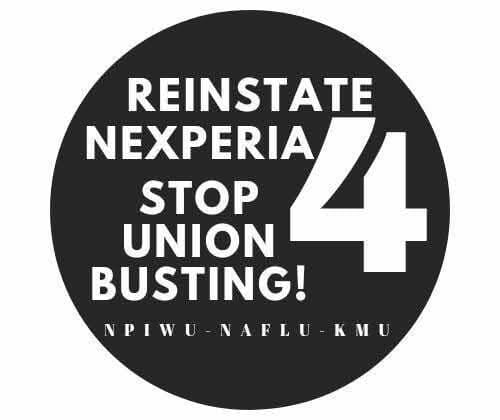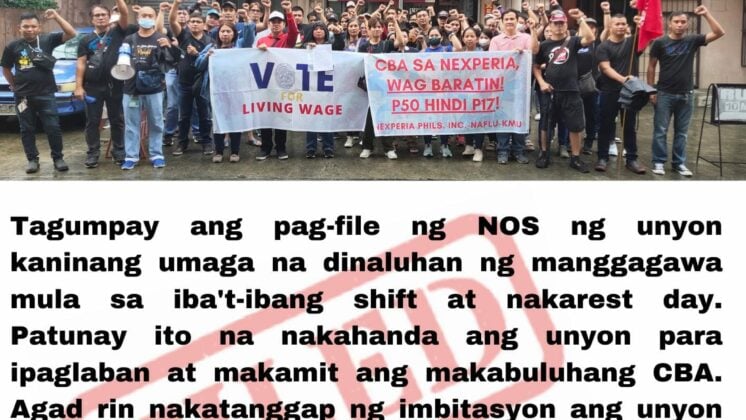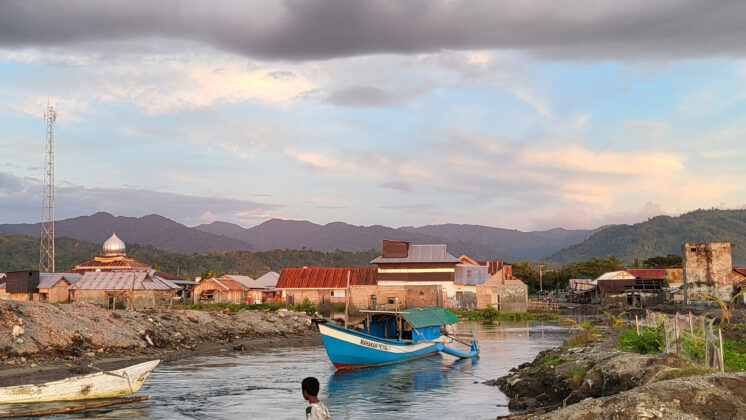A recent study by Philippines NGOs 'Ripples and Rising Tides: Organizing in the Philippine Economic Zones' gives an overview of the current features of special ecozones in the Philippines, the various changes in the concept and practice in the establishment of these zones, and the impact on various aspects of the economy. One chapter in the study is dedicated to the work of the NXP Workers´Union ´Union-building amidst corporate restructuring´.
'Ripples and Rising Tides: Organizing in the Philippine Economic Zones' gives an overview of the current features of special ecozones in the Philippines, the various changes in the concept and practice in the establishment of these zones, and the impact on various aspects of the economy.
The rapid expansion of economic zones in the country and the massive conversion of agricultural lands that accompany it, urge a review of the adverse consequences of this program on the national economy and the country’s natural resources. Equally important is determining the impact on labor rights, particularly the right to free association, which is labor’s most basic instrument for defending its rights and interests.
One chapter in the study is dedicated to the work of the NXP Workers´Union ´Union-building amidst corporate restructuring´. It is seldom that unions are formed inside economic zones, and rarer still for one to exist for over two decades. However, such is the experience of the NXP Semiconductors Cabuyao Incorporated Workers Union currently based at the Light Industry and Science Park I (LISP I) based in Cabuyao, Laguna in Southern Luzon. As in the case of other genuine workers’ unions, it has never been smooth sailing for the union’s membership. Changes in company ownership, management clampdown, and weaknesses in leadership, among other issues, have all posed serious challenges to the union. What kept it afloat, however was the wise use of union democracy and unity-building efforts to save the union from compromise and eventual ruin.
Last October 1st, the authors of the study, NGOs working in the labour sector in the Philippines, organised a panel discussion on Freedom of Association (FoA) in Philippine Economic Zones, with the new study as a basis. Representatives from the Philippine Ecozone Association (PHILEA), Philippine Economic Zone Authority (PEZA) and Department of Labor and Employment (DOLE) sat on the panel of reactors.
At the panel disucssion, the Workers’ Assistance Center (WAC), Ecumenical Institute for Labor Education and Research (EILER), Crispin B. Beltran Resource Center (CBBRC) and Center for Trade Union and Human Rights (CTUHR) presented a recent study “Ripples and Rising Tides: Organizing in the Philippine Economic Zones”. The study cites workers experiences in ten factories located in various ecozones in the country. She underscored the difficulties and major obstacles in union organizing in ecozones, testaments to the incredibly low percentage of unionized workers relative to the total workforce and an even lower percentage of existing collective bargaining agreements.
WAC, EILER and CTUHR express the hope that this will be the start of a genuine and fruitful workers-labour agencies-investors dialogue-discussion and relationship aimed at pursuing workers rights and welfare inside production plants.
For a detailed account of the panel discussion, click here.








